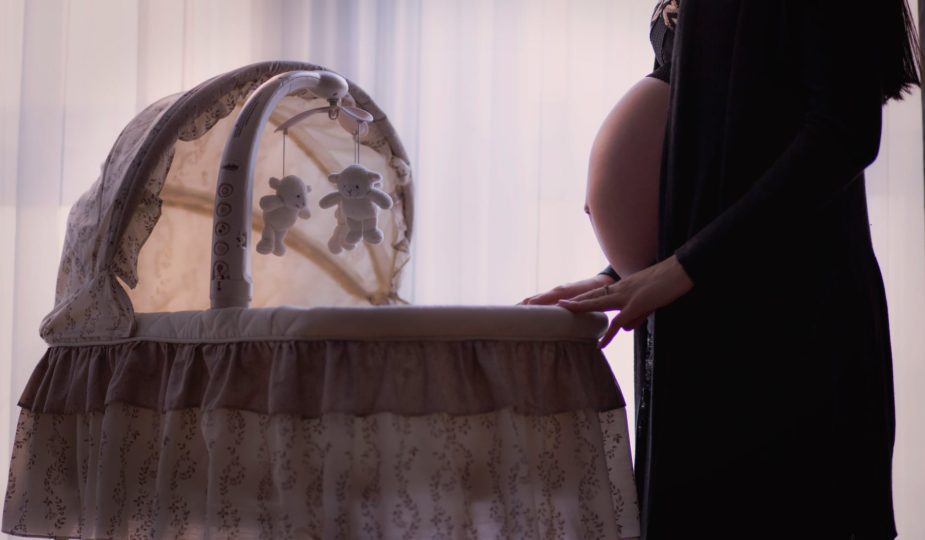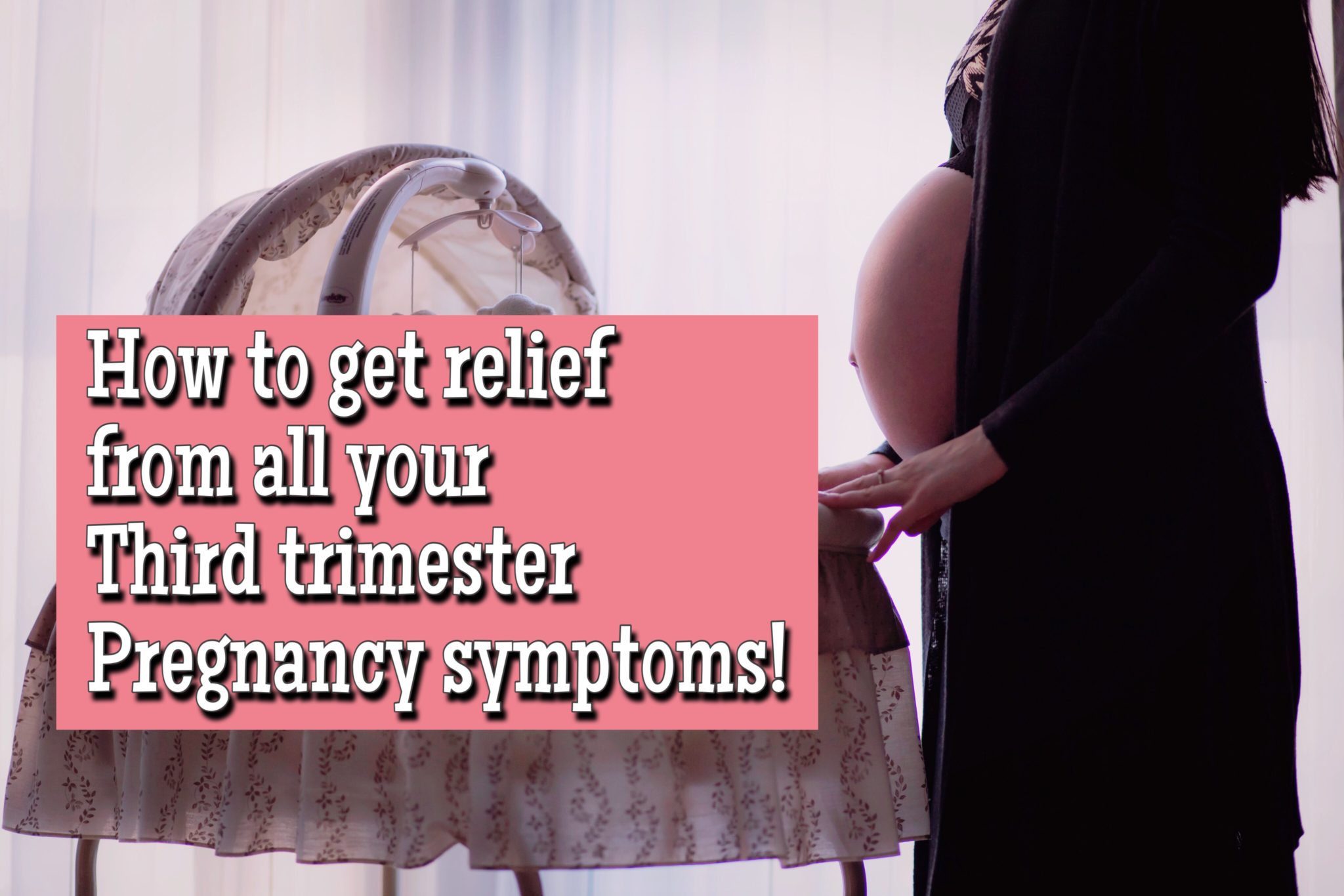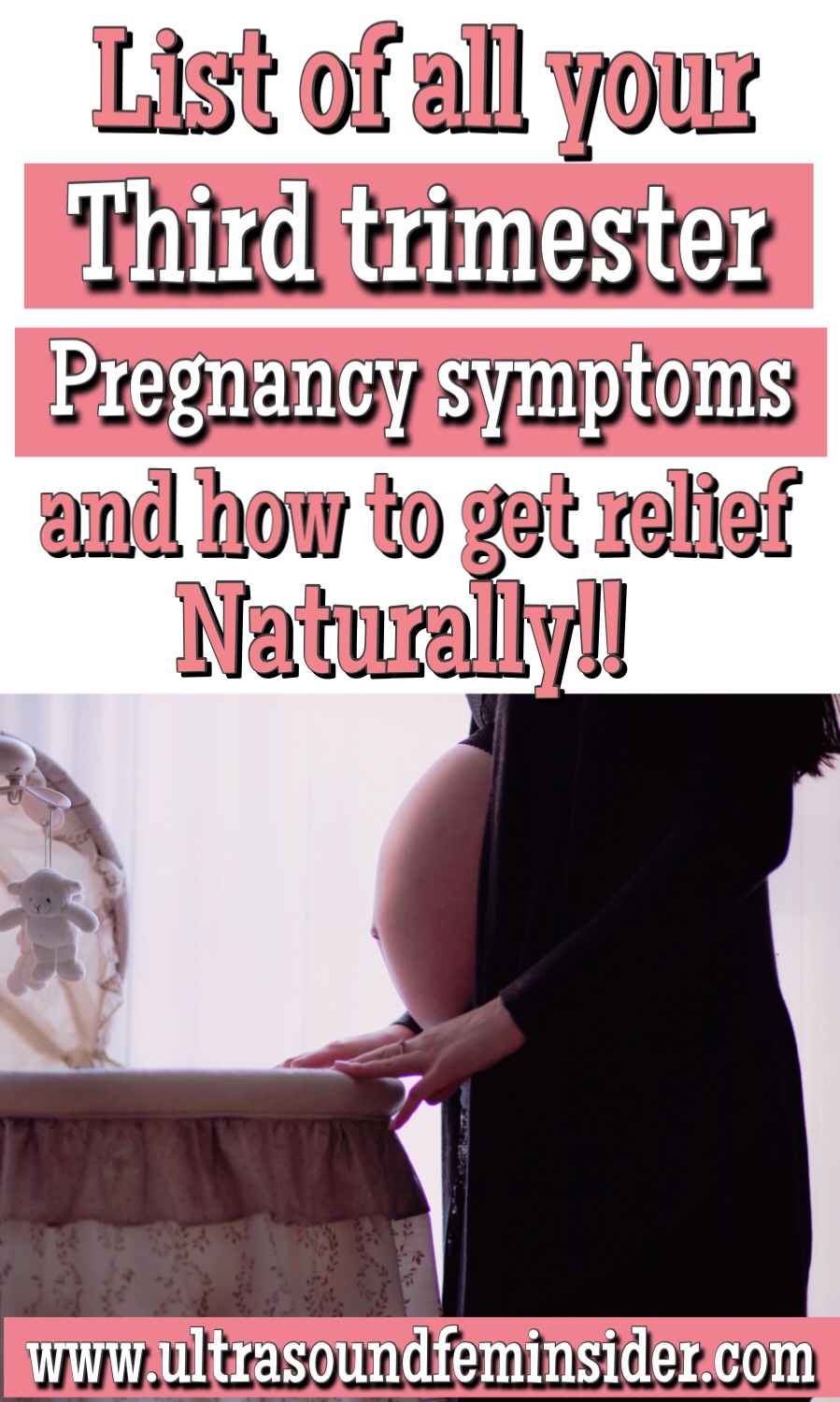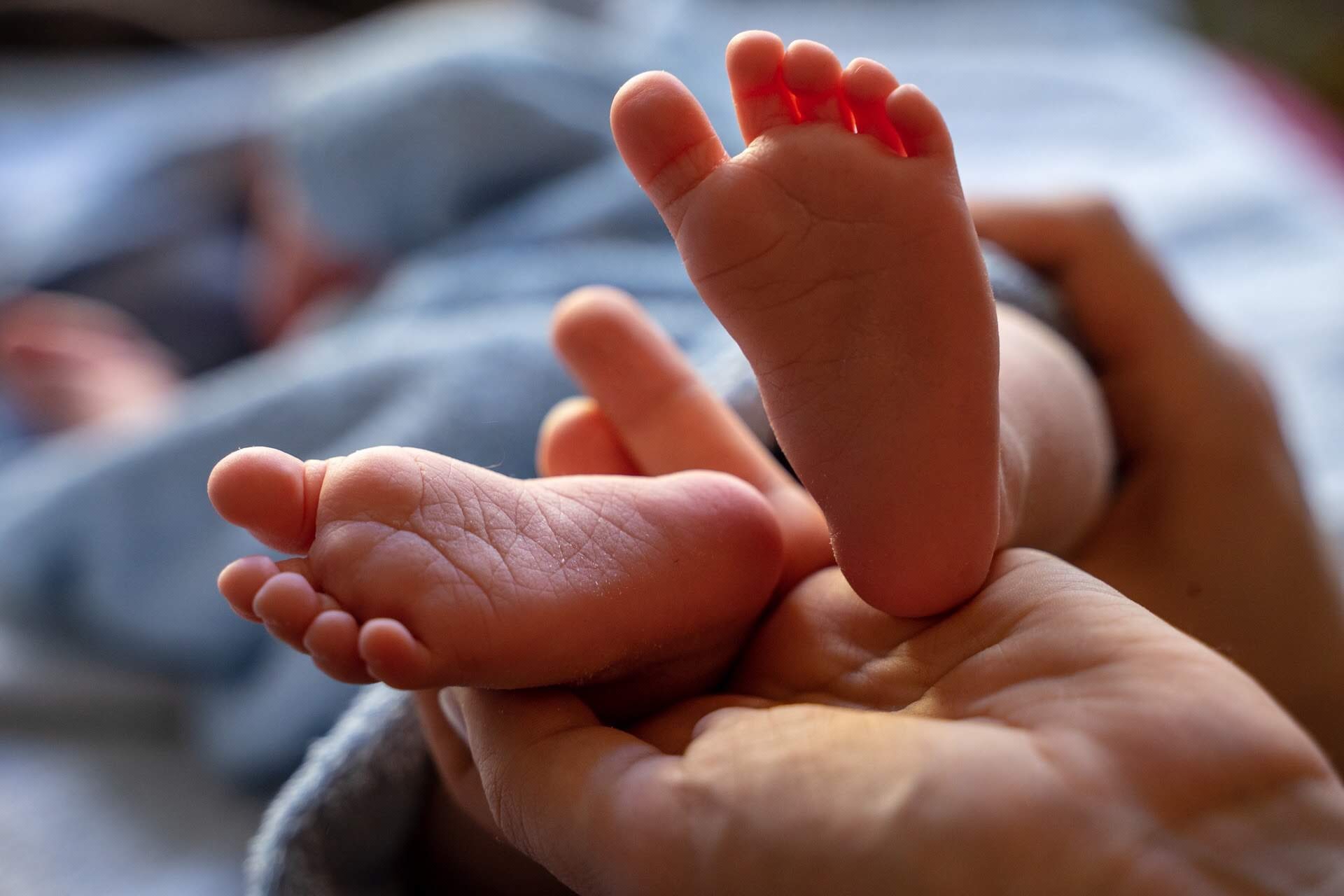The second trimester is over, the third begins. The countdown to finally meet your baby officially begins. During this last trimester, your baby will gain approximately 1 to 1 and a half pounds every 2 weeks. You will gain approximately 3 to 5 pounds, and your uterus will grow from the navel all the way to your rib cage. As you can imagine, with so many changes, the symptoms continue to accentuate in the third trimester. The third trimester is considered to be from 27 to 40 weeks, or from 7 to 9 months. In this post, I am going to give you a detailed and complete list of all Pregnancy symptoms for the third trimester and how to improve them in a natural way.
Most common Pregnancy symptoms for the third trimester.
Heart-pounding sensations:
Throughout your pregnancy, as you know, the volume of blood is steadily increased to accommodate the constant need of your body for oxygen and nutrients. In the middle of the third trimester, your blood will have a volume of 45% more than when you started the pregnancy. For this reason, your heart has to work harder to pump all that volume of blood. Your heartbeat will increase around 10 beats per minute more, compared to a non-pregnant woman, to be able to pump 30% more every minute. Feeling heart-pounding sensations is just another physiological response of your body, to accommodate all major circulatory changes occurring now. To alleviate the discomfort that this may cause to you: Just slow down, try to relax more.
Shortness of breath:
During pregnancy, your respiratory system also undergoes large changes to accommodate the greater and constant flow of oxygen. Your lung capacity is increased just like you may add a few inches to the size of your rib cage, to breath more efficiently. Sometimes, you can feel that you are not breathing enough. This sensation is normal and doesn’t mean that you are not breathing well or that your baby lacks oxygen. It is only that your lungs have less space to expand. Again, the solution for this is: Slow down and take a deep breath and keep stress levels under control as much as possible.
Facial puffiness:
Don’t worry if you get up in the morning and see your swollen face, especially around the eyes. The swelling of the face is also the result of the accumulation of tissue at the cellular level during pregnancy. To help you a bit you can try to stay hydrated, so the retention of fluid is less.
Swelling of hands, legs, and feet:
Pregnancy hormones cause an increase in the need to drink more fluids, and in turn, there is an increase in fluids at the cellular level. What can you do? Try to maintain an adequate and balanced diet. exercise if there are no contraindications, Try to keep a healthy lifestyle. Avoid standing for long periods of time. Elevate your feet as much as you can. Wear loose clothing. Wear compression stockings if the swelling gets worse.
Backache:
50% of future moms-to-be have some type of back pain especially in the third trimester. The back pain is caused by a separation of the abdominal muscles, this forces you to use more the muscles of the back, also that with a large belly the gravity is shifted. What you can do to relieve your back pain: Wear comfortable shoes. Avoid staying in the same position for long periods of time. Start sleeping on your sides to avoid compressing your spine while you sleep. Try to maintain a healthy lifestyle and a healthy weight gain as well.
Clumsiness:
A combination of the extra pounds you have in your body, the relaxation of some ligaments and your forgetful mind can cause this symptom, again, nothing to worry about, will be over soon. To alleviate this symptom a bit, try to pay more attention, especially in places that are not familiar to you, remember the last thing you want at this moment is a fall.
Aching hips:
Especially during the last months of pregnancy you will notice discomfort in the hips and pubic bone while walking. This is because the ligaments in the hips and pelvic bone are stretched and the cartilages are softer, normal process that occurs in your body to prepare your bones for the time of delivery. (Again, nature is wise). What can you do? Just take it easy and slow.
Frequent urination:
The sensation of urinary frequency at the beginning of pregnancy is related to the sudden increase in hormones. In the middle and end of pregnancy, this frequency will be caused by the pressure of the enlarged uterus in the urinary bladder.
Thirsty:
Due to the hormonal increase, the frequency of urination increases as well. As an innate mechanism of defense of your body, you will also feel the need for drinking water, more than usual to avoid getting dehydrated. So, you know what to do, drink it up.
Pelvic discomforts:
Even if you still can’t see your belly, at the end of the first trimester you will begin to feel that there are substantial changes in your pelvis. A feeling of fullness in the lower abdomen is normal, you can also experience stabbing pains when you change position quickly, and this is because as the uterus grows all the support ligaments of this organ are stretching as well. As the pregnancy progresses these discomforts will feel intense, but with a little rest and moderate exercises, you can find relief.
Leaking colostrum from your breasts:
Colostrum, the first milk your baby will get when born, it contains more protein but less fat and sugar than more mature breast milk, making it easier for baby to digest in the first few days after birth. It’s also full of antibodies (immunoglobin A, or IgA) your baby didn’t encounter in the womb which help protect her from germs that can infect the mucous membranes of her throat, lungs, and intestines.
Stretch marks:
Stretch marks might still be appearing on your third trimester. Keep that body oil and/or skin moisturizers reachable and put it up as much as you can.
Braxton Hicks contractions:
Braxton hicks contractions is when your uterus occasionally feel tight as it practices for labor. This is totally normal as long as the contractions go away when you change positions. Let your doctor know about any pain or contractions that don’t stop.
Share this post here!
Looking for more information about pregnancy or motherhood? Check out this other posts!
How to boost your baby’s brain growth and development.
How to prevent preterm labor naturally.
Baby sleep training. The complete guide.
Newborn developmental milestones, first 3 months.
Final thoughts about Pregnancy symptoms for the third trimester.
At the end of 9 months or 40 weeks you will feel heavy. You might feel that is impossible to find a position that is comfortable enough. All these symptoms mentioned in today’s post, plus all the other symptoms that were accumulating since the beginning of the pregnancy are going to be adding up for 9 months.
My advice to you: Always check with your doctor if you have questions about anything. Try to keep a healthy and balanced diet. Drink lots of water. Exercise if there is no contraindication. And give yourself a lot of love at this time. Seek help and delegate tasks to those who want to help you, and just have patience.
I hope this information help you somehow. I’ll see you next time.
Zadi, xo
Disclaimer: The medical information on this post is for educational and entertainment use only. Under no circumstances, the information in this post is to replace your doctor’s advice or to treat any disease. For proper care always visit your doctor.












[…] Pregnancy symptoms for the third trimester. […]
[…] Pregnancy symptoms for the third trimester. […]
[…] Pregnancy symptoms for the third trimester. […]
[…] Pregnancy symptoms for the third trimester. […]
Excellent article, a lot of help for new moms. Thank you so much, I’ll be back to read more of your blog.
Thanks
[…] Pregnancy symptoms for the third trimester. […]